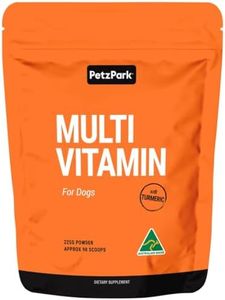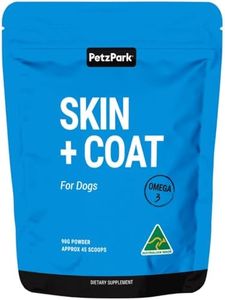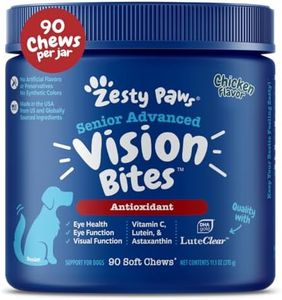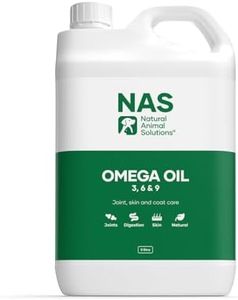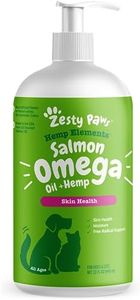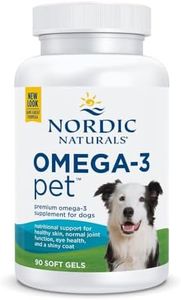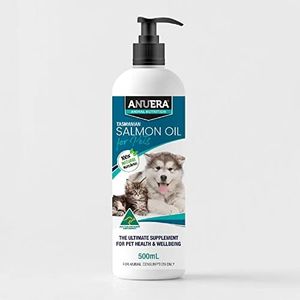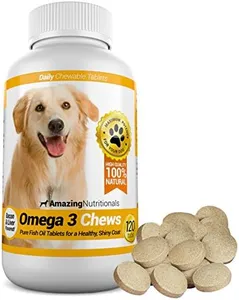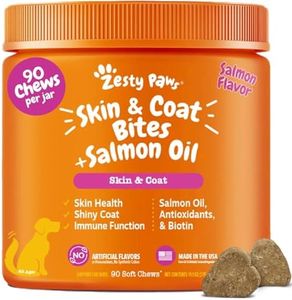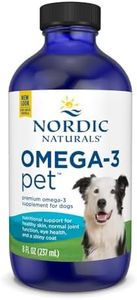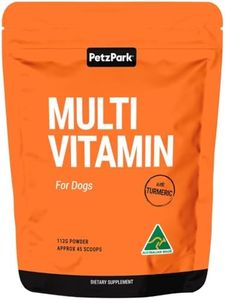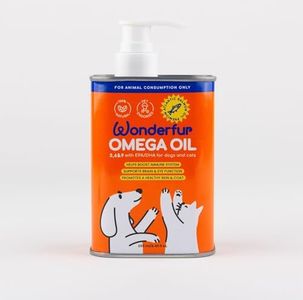We Use CookiesWe use cookies to enhance the security, performance,
functionality and for analytical and promotional activities. By continuing to browse this site you
are agreeing to our privacy policy
10 Best Dog Fish Oils
From leading brands and best sellers available on the web.By clicking on a link to a third party's website, log data is shared with that third party.
Buying Guide for the Best Dog Fish Oils
Choosing the right fish oil supplement for your dog can be a bit confusing, but understanding what to look for will help you make a smart and safe choice. Fish oils are popular because they can support your pet’s skin, coat, joints, and overall health. However, not all products are the same and your dog’s needs may differ depending on their size, age, breed, and health conditions. Carefully reading the label and considering a few key points will help you find the best option for your furry friend.EPA and DHA ContentEPA (eicosapentaenoic acid) and DHA (docosahexaenoic acid) are the main types of omega-3 fatty acids found in fish oil, and these are the ingredients that bring most of the health benefits to your dog. A higher content means more potent effects on your dog's joints, skin, and heart. Products will list the amount in milligrams per serving, and this can range from low, moderate, to high concentrations. For general wellness, a moderate amount is usually enough, but dogs with specific health issues (like joint problems) might need a higher dosage. Always match the EPA and DHA levels to your dog’s size and reason for supplementation, and check with your vet if you’re unsure.
Purity and SourceThe source of the fish oil (such as salmon, sardines, anchovies, or mixed fish) and purification process matter because heavy metals and toxins can be present in poorly sourced oils. High-quality oils will mention molecular distillation or purification and name the fish source clearly. Lower quality products may not specify the type of fish or purification. For the safety of your pet, choose oils that are clear about their fish source and purification method, especially if your dog already has health issues.
Form (Liquid, Capsule, Chew)Fish oil for dogs can come as liquid, capsules, or soft chews. Each form has its pros and cons. Liquids are easy to mix with food and good for picky eaters, but dosing can be messy. Capsules are precise and ideal for medium to large dogs comfortable with pills. Chews are tasty and convenient but may include more additives. Pick the form that matches your dog’s size, your routine, and your dog’s willingness to take supplements.
Additives and IngredientsSome fish oil products contain extra ingredients like flavors, preservatives, or vitamins. It’s important to read the label: unnecessary additives can cause allergies or upset stomachs in sensitive dogs. Simple, pure ingredients are safer for most pets. If your dog has allergies or sensitivities, or if you want to avoid unnecessary extras, choose a product with minimal added ingredients.
Certification and TestingLook for third-party testing or certification, as this shows the product has been checked for quality and purity by an outside organization. Certifications include things like NSF, IFOS, or NASC. Products without any verification may not be as reliable. If you want peace of mind regarding what you’re giving your dog, prioritize fish oils that display clear evidence of third-party testing.

